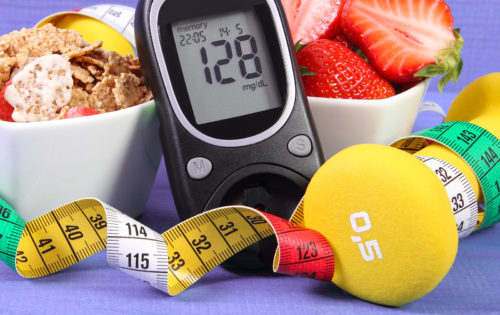People living with diabetes have an increased risk of getting very sick from coronavirus. Diabetes type 1 and type 2 both cause an increase in blood sugar. Poorly controlled blood sugar can make viral diseases, including COVID-19, more dangerous, likely because higher blood sugar can create an environment where viruses can thrive.
In addition, diabetes increases inflammation and weakens the immune system, making it harder for people living with the condition to fight off disease in general.
Add to this a flood of information from the news that makes it difficult to discern between fact and fiction. For instance, we hear people with diabetes have higher risks tied to COVID-19, but it’s not clear what those risks are.
We’ve gathered some of the questions you have circling in your head and pulled together answers:
Is having diabetes a reason more black folks are dying from coronavirus?
It’s true that diabetes is at epidemic proportions in this country, particularly among black folks. We are twice as likely to develop the disease and to die from it as our white counterparts. But it is likely a jumble of disparities—limited access to health care, income inequality, lack of insurance, environmental racism, political issues, and neighborhoods with few resources—that leave black communities vulnerable to a higher risk of chronic conditions, including coronavirus.
Does having diabetes mean you’re more likely to contract coronavirus?
No. This is an equal opportunity virus. Everyone’s risk of getting coronavirus goes up when exposed to someone with the virus. But having diabetes does increase the risk of becoming very sick and experiencing severe complications if you are infected with the virus. That’s why social distancing and hand washing are so important.
Why are diabetics more likely to suffer severe symptoms?
Uncontrolled diabetes may make symptoms feel more intense. It also may be more challenging to manage a pre-existing condition when you become sick or fatigued. It’s a cycle: Diabetes that isn’t well managed leads to high blood sugar. High blood sugar leads to a weakened immune system. When your immune system isn’t performing as well, it has a harder time fighting off infections, which could result in a hospitalization.
What can I do to protect myself if I have diabetes?
Set yourself up for success with healthy eating habits and 30 minutes of exercise every day.
Should I be worried about a shortage of diabetes supplies?
No manufacturers of diabetes supplies or medication have reported issues with supply chains or deliveries. That said, it’s important to stay on top of when you need more insulin and refills of your glucose testing supply. You should also keep an eye on when your supply expires. You’ll also need glucose tablets to treat low blood sugar appropriately. If you have type 1 diabetes, urine ketone test strips are crucial, because risks for diabetic ketoacidosis rise with viral infections, like COVID-19.
What should I do if someone in my house gets coronavirus?
The rules for this are the same for diabetics and people who don’t have the disease: Quarantine the sick person, clean household surfaces frequently, wash your hands and stay in a separate room (or residence), especially if you’re 65 or older.
What should diabetics do if they need to go to the doctor’s office?
Many in-person visits with providers have been rescheduled for a later date. If you need help before that time, talk to your doctor about virtual visits through online patient portals.






